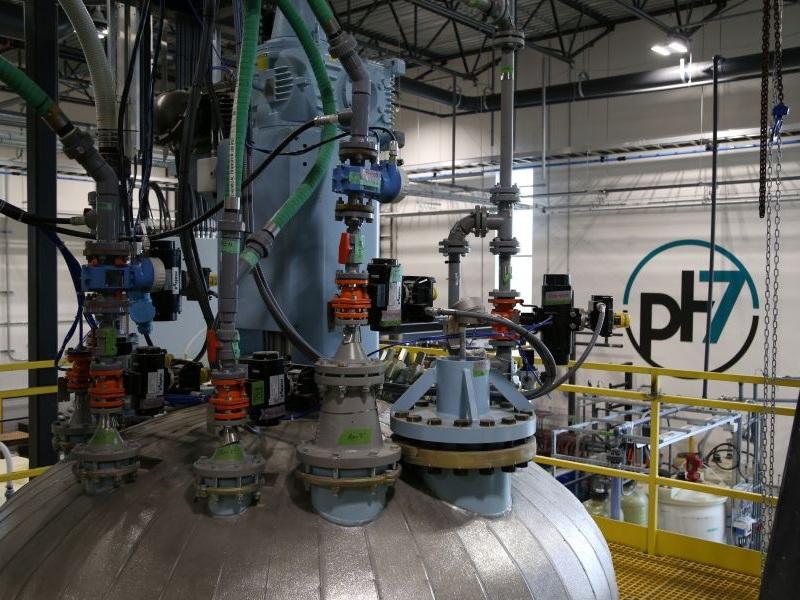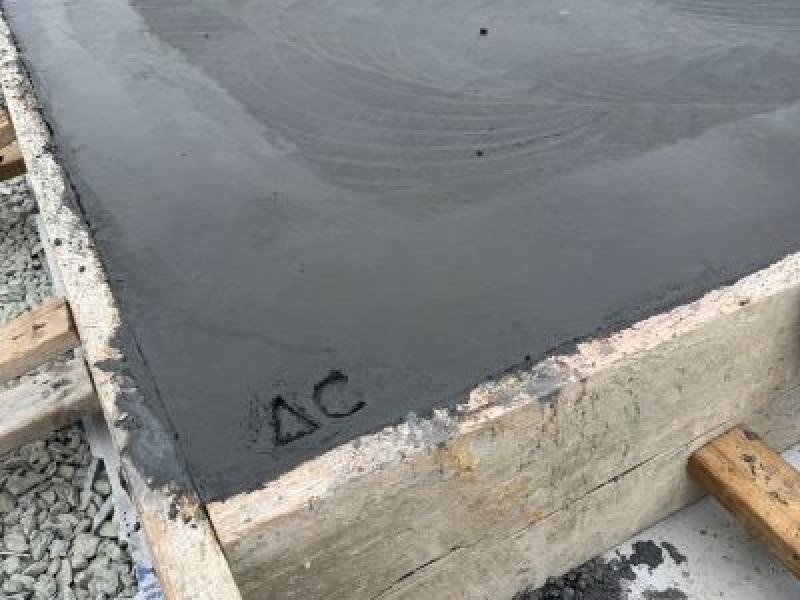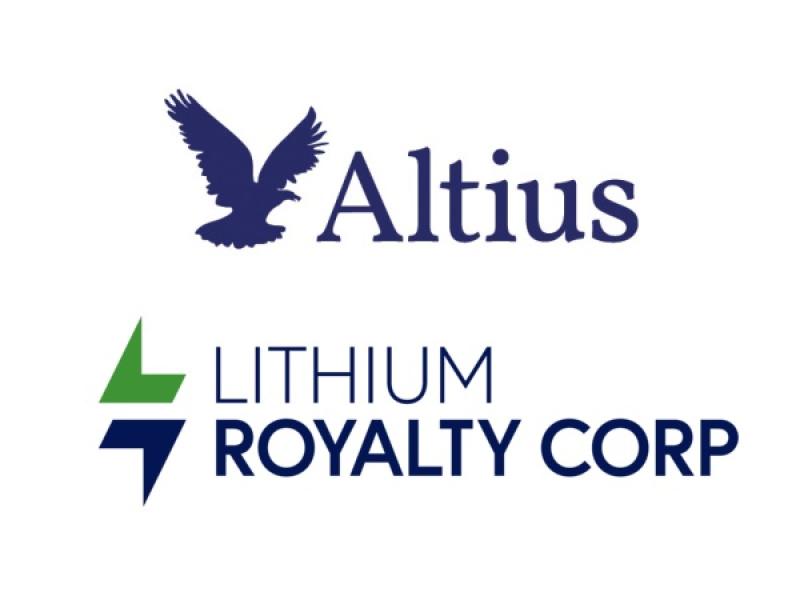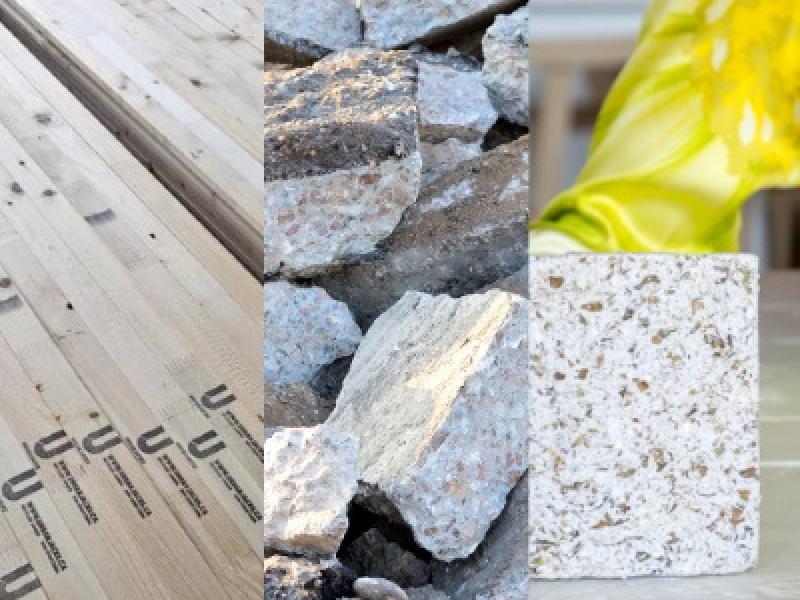Recent Articles
Developer launches Clear to purify building water and air
Developer launches Clear to purify building water and air
Air and water purification firm Clear Inc. began as Gil Blutrich’s mission to address sick building syndrome after his daughter became ill due to contaminated water and the Toronto-based real estate developer began investigating water and air quality in buildings.
Laying the foundation for net-zero carbon buildings
• GreenBiz
Designed and executed with care, net-zero carbon goals offer more than sustainability window dressing for commercial buildings in the decades to come. More real estate owners, operators, developers and investment firms see the appeal of future-proofing properties from climate shocks.
Boardwalk launches BWell wellness certification program
Boardwalk REIT has launched BWell a certification program and process that will assess and award Boardwalk communities that prioritize the design, development and integration of innovative programs and strategies compliant with the safety, inclusivity, diversity and sustainability of their residents.
Accelerate plans ZEV supply chain for Canada
A new organization aims to bring together key Canadian industries to establish a zero-emission vehicle supply-chain strategy. Accelerate wants involvement from every stage of the auto production supply chain, from mining critical minerals through to the manufacturing of the vehicle parts,
Second life EV batteries, game changer for microgrids
Second life electric vehicle batteries can lower costs and provide environmental benefits to microgrid owners and utilities though getting them up and running at a reasonable cost isn’t always easy. Here’s what happens to recycled electric vehicle batteries.
Gas is cheap: High prices encourage alternatives
In November 2021, gas averaged $3.745 per U.S. gallon. North of the border in Canada, it sold for $4.811. In France, it was $7.002 and in the Netherlands, $8.605. In all of those countries, people tend to drive smaller cars that have greater fuel efficiency.
Explaining the exponential growth of renewable energy
• GreenBiz
The rapid growth of solar and wind power in recent years has breathed hope into global efforts to reduce greenhouse gas emissions. In 2010, solar and wind combined made up only 1.7 percent of global electricity generation. It climbed to 8.7 percent in 2020.
Amazon predicts 100% renewable operations by 2025
Amazon has increased its renewable energy procurement by 40% since 2020 and is adding 18 more wind and solar projects. It has produced 5.6 gigawatts of electricity from its renewable sources in 2021 and expects to completely power its operations with renewable power by 2025.
Electric boilers and electrifying the industrial sector
• GreenBiz
Of the U.S. energy sectors that need to decarbonize — residential, industrial, commercial and transportation — industrial is the hardest nut to crack because the technologies tend to be less mature, more expensive, and companies are wary of investing in equipment upgrades.
Australian mining co. looks to Canada for hydrogen
An Australian mining giant has signed agreements with three Canadian Indigenous nations to determine the viability of building green hydrogen projects as the company attempts to reinvent itself as a supplier of clean renewable energy.
Interview with Tim Mawhood, ED at GHD Advisory
• H2 View
Tim Mawhood leads GHD Advisory’s business in the UK, Europe and Middle East. He advised on over $70bn of infrastructure transactions, and focuses on helping clients achieve net-zero aims with a particular focus on hydrogen, currently for projects across the EMEA.
Why boardrooms must be fluent in the ABCs of ESG
• Globe and Mail • REMI Network
Larry Fink, BlackRock Inc.’s chief executive, has shaken up the corporate world by demanding companies in its portfolios prove they have a net-zero carbon emissions plan. He warned that lagging would mean potential proxy fights or even divestment by Blackrock.
Investors, insurers examining ESG risks, divestment
Like insurers, Canada’s institutional investors are examining how ESG factors weigh into their operational decisions. An EY report on global institutional investors that includes Canada showed 74% are more likely to divest from companies with poor ESG track records.
Canada Plastics Pact welcomes 15 new partners
• Canada Platics Pact news release • Sustainable Biz Canada
Canada Plastics Pact welcomed 15 new partners following last month’s release of its shared action plan to build a circular economy for plastic packaging in Canada. The new partners include consumer goods organizations, governments, a waste management company, non-profits, and others.
Plastic Credit Exchange brings plastic offsets U.S.
• Environmental Leader • Environmental Leader
Philippines-based plastic waste solutions company Plastic Credit Exchange (PCX) recently expanded into the US, where it will make available its plastic-waste offset program to American companies such as Herb + Flora, Peanut Butter & Co. and Touchland Hand Sanitizer.
U.S. is World’s top generator of plastic waste
• Yale 360
The U.S. generates more plastic waste than any other country, producing roughly 287 pounds of plastic per person per year. That adds up to about 42 million metric tons in 2016 nearly twice the amount of plastic waste generated in China.
TELUS commits to Indigenous reconciliation plan
TELUS released its 2021 Reconciliation and Indigenous Connectivity Report, an evolution from the annual connectivity report that shares inspiring stories of the transformative benefits that connectivity brings to Indigenous communities. This year’s report also includes TELUS’ first-ever Indigenous reconciliation action plan.
Class is in session for Indigenous entrepreneurs
Outside the classroom, business schools are redefining relations with Indigenous communities by learning to listen. In 2013, the University of Victoria’s Peter B. Gustavson School of Business founded the Indigenous Advancement of Cultural Entrepreneurship (I-ACE) program.
First Nations’ response to B.C. floods held up as a model
• Globe and Mail • Toronto Star
The Chemainus River flooded the tiny Halalt First Nation on Vancouver Island during last month’s destructive storms, but the damage was minimized by an impromptu coalition of agencies being held up as a model for improving B.C.’s emergency response.
OPINION: Precaution can protect Van.’s endangered rivers
Human activity has long endangered rivers with incursions of agriculture, dams, dikes, diversions, deforestation and urban development. Rivers have been paved over, polluted and rerouted. Now they’re threatened by climate change resulting in heat domes, droughts, wildfires and catastrophic flooding.
Impact of climate change $10.1-billion per year: FAO report
The Financial Accountability Office of Ontario (FAO) released a report detailing the costs to the province if it fails to adapt to a warming planet. Currently, it costs about $10.1 billion to keep Ontario’s public buildings in a quality state
 Industry Events
Industry Events
-
ECO IMPACT 2026
Feb 19 2026
to Feb 20 2026
The Westin Calgary
-
BuildGreen Atlantic
Apr 27 2026
to Apr 28 2026
Halifax, NS
-
The Evergreen Conference
May 06 2026
to May 07 2026
Toronto, ON
-
Building Lasting Change
Jun 17 2026
to Jun 19 2026
Montréal, QC
-
Retrofit Canada Conference
Jun 24 2026
to Jun 25 2026
Halifax Convention Center











